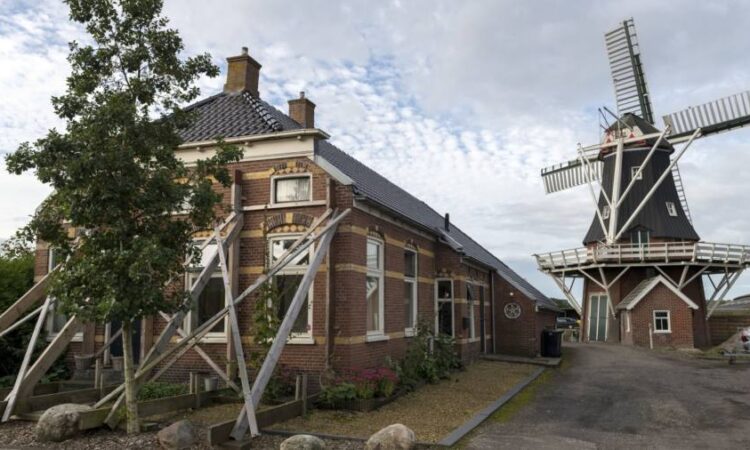
The Netherlands wants to close Europe’s largest gasfield this year because it is “very dangerous” to keep operating it, according to a government official.
Hans Vijlbrief, state secretary for mining, who is responsible for the earthquake-prone Groningen gasfield, said he aimed to shut it by October 1 but would wait to see if there was a shortage of gas in Europe after the winter. If necessary, it would remain open until October 2024.
The onshore gasfield, in Netherlands’ north-east close to the German border, is on the “backburner”, producing just a fraction of its capacity, said Vijlbrief, who also ruled out expanding production at the site.
“We won’t open up more because of the safety issues,” he told the Financial Times. “It is politically totally unviable. But apart from that, I’m not going to do it because it means that you increase the chances of earthquakes, which I don’t want to be responsible for.”
There have been up to 100 tremors annually in the area since the 1980s, with more than 160,000 claims for damage to property. The strongest have registered 3.6 on the Richter scale, with the effects magnified because of the soft soil and the tremors occurring close to the surface.

The Hague came under pressure to increase extraction at Groningen last summer after Moscow began restricting supplies to the EU because of the bloc’s support for Ukraine. In 2021 Russia accounted for 155bn cubic metres of gas imports, 40 per cent of total EU consumption.
Instead, it postponed plans to shut it and reduced annual output to 2.8 bcm, the minimum required to keep its pumps working. Producing more than 5 bcm would exacerbate the risk of seismic activity in the area, Vijlbrief said.
Groningen, which opened in 1963, pumped out more than 50 bcm at its peak nearly a decade ago. The Hague told operator NAM, a joint venture of Royal Dutch Shell and ExxonMobil, to reduce production from 2013 and in 2018 announced the field would close.
“It’s very, very simple: everybody who has some knowledge of earthquake danger tells me that it’s really very dangerous to keep on producing there. I’m quite convinced it’s wise to close it down,” Vijlbrief said.

Adding to the pressure is a parliamentary inquiry that is set to confirm previous governments covered up the fact that gas extraction was causing earthquakes.
The findings, which will be presented next month, will be “devastating”, Vijlbrief said. “In all the hearings, it was crystal clear that the whole safety aspect of Groningen gas drilling was neglected for many years.
“I already have a big parliamentary majority behind me that wants to close as soon as possible. This report will only enhance this majority.”
The government has set aside €8.8bn to settle damage claims until 2028.

Vijlbrief said the Netherlands — and Europe — had sufficient gas after securing imports from the US, Norway, Qatar and elsewhere, with the mild winter so far helping to maintain high storage levels.
The Netherlands cut gas consumption by an “astonishing” 22 per cent last year compared with 2021, with the reduction led by “companies scaling down [output]” because of high energy prices, he said.
North-west Germany was heavily reliant on Groningen’s low-calorie gas, adapting household boilers and industrial units to burn it, but has already turned to alternative sources, he said. Most imported gas is higher calorie so has to be mixed with nitrogen to run in the same systems.
A new nitrogen-enrichment plant commissioned by Gasunie, the Dutch network operator, is 98 per cent complete but the firm building the site has had to bring in alternative contractors to finish the job. Vijlbrief said the plant was “a necessary condition to close down Groningen”.
The government aims to provide incentives to companies to develop fields under the North Sea. An extra 1 bcm could be produced within three years, and an additional 2-4 bcm after five years, he said.






